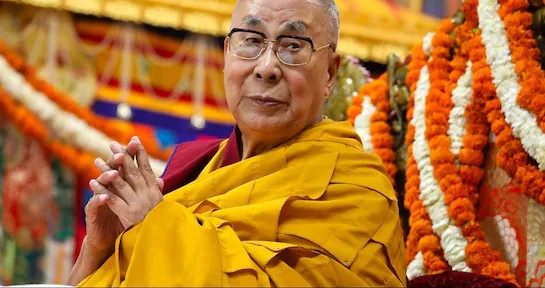As His Holiness the 14th Dalai Lama nears his 90th birthday, the Tibetan people and global observers are watching closely. The revered spiritual leader remains in good health and high spirits, but his succession has become a subject of deep concern and geopolitical tension—particularly amid efforts by the Chinese Communist Party (CCP) to exert influence over the process.
A Legacy of Spiritual Leadership and Political Reform
For centuries, the Dalai Lama has symbolized both the spiritual heart and political soul of the Tibetan people. But in 2011, His Holiness took a historic step by devolving his political authority to the democratically elected Tibetan Parliament in Exile, ensuring the separation of religious and political institutions for the first time in 400 years.
Now, as he approaches his 90th birthday on July 6, 2025, attention turns to the question of reincarnation—a central tradition in Tibetan Buddhism. The Dalai Lama has expressed his intent to live beyond 110, but the process of identifying his successor remains a point of uncertainty.

Chinese Interference and the Disputed Panchen Lama
Traditionally, the Panchen Lama—Tibetan Buddhism’s second-highest authority—plays a key role in identifying the Dalai Lama’s reincarnation. However, the legitimate 11th Panchen Lama, Gedhun Choekyi Nyima, was abducted by Chinese authorities in 1995 shortly after being recognized by the Dalai Lama. He has not been seen since. Beijing then appointed their own Panchen Lama, a move widely dismissed by Tibetans and the international community as politically motivated.
In 2007, China passed a controversial law mandating that all reincarnations of Tibetan lamas must be approved by the government—an attempt to control religious succession. This has alarmed Tibetans who fear that Beijing may try to install its own Dalai Lama, undermining the legitimacy of the centuries-old Tibetan tradition.
Reaffirming Tibetan Autonomy in Succession
In recent interviews and his writings—including Voice for the Voiceless—His Holiness has stated that any reincarnation will occur outside of Chinese-controlled territory, possibly in a democratic country. He has even suggested the possibility of not reincarnating at all, depending on the wishes of the Tibetan people.
A significant spiritual gathering of high lamas is set to begin on July 2 in Dharamshala, India, where Tibet’s government-in-exile is based. Many hope this event will lead to a formal succession framework or announcement on or around his 90th birthday.
Lawmaker Lhagyari Namgyal Dolkar noted that the community remains optimistic, celebrating His Holiness’s enduring vitality and envisioning a future where his 100th birthday is observed at the Potala Palace in Lhasa—a symbolic dream of Tibetan freedom.
The World Watches and Waits
Major General G.D. Bakshi, highlighted the geopolitical implications, noting that despite China’s efforts to “Sinicize” Tibetan Buddhism, the Dalai Lama’s influence remains deeply rooted and undiminished. Quiet worship of the Dalai Lama still exists in Tibetan monasteries, despite Chinese restrictions.
Activists and lawmakers alike argue that this is not merely a religious matter—it is a cultural and human rights issue. They are calling on the Indian government and the international community to support Tibetans’ right to determine their spiritual future without Chinese interference.
Conclusion
The upcoming meetings in Dharamshala and the 90th birthday of His Holiness may mark a pivotal moment for Tibet. With reverence and caution, the Tibetan community is preparing for a post-Dalai Lama future—one rooted in tradition, but defended with renewed global awareness.
If the legacy of the 14th Dalai Lama is any guide, the Tibetan people will continue to champion nonviolence, spiritual wisdom, and democratic resilience in the face of mounting pressure. The world must now decide whether to stand with them in protecting that sacred legacy.
Stay updated with UState Pulse for global news.